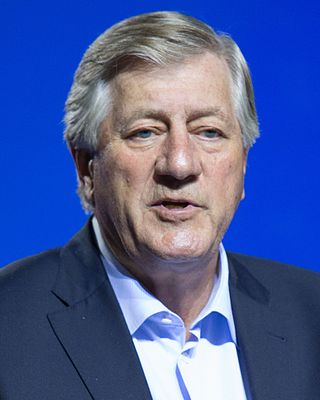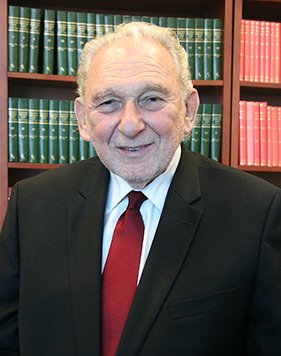
Environmental laws are laws that protect the environment. Environmental law is the collection of laws, regulations, agreements and common law that governs how humans interact with their environment. This includes environmental regulations; laws governing management of natural resources, such as forests, minerals, or fisheries; and related topics such as environmental impact assessments.Environmental law is seen as the body of laws concerned with the protection of living things from the harm that human activity may immediately or eventually cause to them or their species, either directly or to the media and the habits on which they depend.

A non-governmental organization (NGO) is an organization that generally is formed independent from government. They are typically nonprofit entities, and many of them are active in humanitarianism or the social sciences; they can also include clubs and associations that provide services to their members and others. NGOs can also be lobby groups for corporations, such as the World Economic Forum. NGOs are distinguished from international and intergovernmental organizations (IOs) in that the latter are more directly involved with sovereign states and their governments.

Medicare is an unofficial designation used to refer to the publicly funded single-payer healthcare system of Canada. Canada's health care system consists of 13 provincial and territorial health insurance plans, which provide universal healthcare coverage to Canadian citizens, permanent residents, and depending on the province or territory, certain temporary residents. The systems are individually administered on a provincial or territorial basis, within guidelines set by the federal government. The formal terminology for the insurance system is provided by the Canada Health Act and the health insurance legislation of the individual provinces and territories.

Michael Deane Harris is a Canadian retired politician who served as the 22nd premier of Ontario from 1995 to 2002 and leader of the Progressive Conservative Party of Ontario from 1990 to 2002. During his time as party leader, he heavily nudged the Ontario PC Party to Blue Toryism, advocating for the "Common Sense Revolution", his government's program of deficit reduction in combination with lower taxes and budget cuts.
Legal aid is the provision of assistance to people who are unable to afford legal representation and access to the court system. Legal aid is regarded as central in providing access to justice by ensuring equality before the law, the right to counsel and the right to a fair trial. This article describes the development of legal aid and its principles, primarily as known in Europe, the Commonwealth of Nations and in the United States.
Earthjustice is a nonprofit public interest organization based in the United States dedicated to litigating environmental issues. Headquartered in San Francisco, they have an international program, a communications team, and a policy and legislation team in Washington, D.C., along with 14 regional offices across the United States.

Environmental planning is the process of facilitating decision making to carry out land development with the consideration given to the natural environment, social, political, economic and governance factors and provides a holistic framework to achieve sustainable outcomes. A major goal of environmental planning is to create sustainable communities, which aim to conserve and protect undeveloped land.
A public hospital, or government hospital, is a hospital which is government owned and is fully funded by the government and operates solely off the money that is collected from taxpayers to fund healthcare initiatives. In some countries, this type of hospital provides medical care free of charge to patients, covering expenses and wages by government reimbursement.
Public participation, also known as citizen participation or patient and public involvement, is the inclusion of the public in the activities of any organization or project. Public participation is similar to but more inclusive than stakeholder engagement.
The Leadership Conference on Civil and Human Rights, formerly called the Leadership Conference on Civil Rights, is an umbrella group of American civil rights interest groups.
Ecojustice Canada, is a Canadian non-profit environmental law organization that provides funding to lawyers to use litigation to defend and protect the environment. Ecojustice is Canada's largest environmental law charity.
The Korea Federation for Environmental Movements (KFEM) is a non-profit organization in South Korea that focuses on environmentalism.

Healthcare in Israel is universal and participation in a medical insurance plan is compulsory. All Israeli residents are entitled to basic health care as a fundamental right. The Israeli healthcare system is based on the National Health Insurance Law of 1995, which mandates all citizens resident in the country to join one of four official health insurance organizations, known as Kupat Holim which are run as not-for-profit organizations and are prohibited by law from denying any Israeli resident membership. Israelis can increase their medical coverage and improve their options by purchasing private health insurance. In a survey of 48 countries in 2013, Israel's health system was ranked fourth in the world in terms of efficiency, and in 2014 it ranked seventh out of 51. In 2020, Israel's health system was ranked third most efficient in the world. In 2015, Israel was ranked sixth-healthiest country in the world by Bloomberg rankings and ranked eighth in terms of life expectancy.

Legal Aid Ontario (LAO) is a publicly funded and publicly accountable non-profit corporation, responsible for administering the legal aid program in the province of Ontario, Canada. Through a toll-free number and multiple in-person locations such as courthouse offices, duty counsel and community legal clinics, the organization provides more than one million assists to low-income Ontario residents each year.

The Canadian Association of Physicians for the Environment (CAPE) is a Canadian-based non-profit organization dedicated to environmental issues, especially as they relate to human health. The group was founded in 1994, and is composed of over 4,700 medical doctors and concerned citizens from across Canada. Its main focus is education of physicians and members of the public, sending delegates to scientific conferences, publishing opinion articles, talking to the media, and disseminating educational materials. It also makes presentations to parliamentary committees.
West Coast Environmental Law (WCEL) is an environmental law and public advocacy organization based in Vancouver, British Columbia, Canada that does reform for environmental policies in British Columbia and the rest of Canada.
Public interest law refers to legal practices undertaken to help poor, marginalized, or under-represented people, or to effect change in social policies in the public interest, on 'not for profit' terms, often in the fields of civil rights, civil liberties, religious liberty, human rights, women's rights, consumer rights, environmental protection, and so on.

Sidney Bryan Linden is a former Chief Judge of the Ontario Court of Justice and a judicial reformer and administrator in the province of Ontario, Canada.








